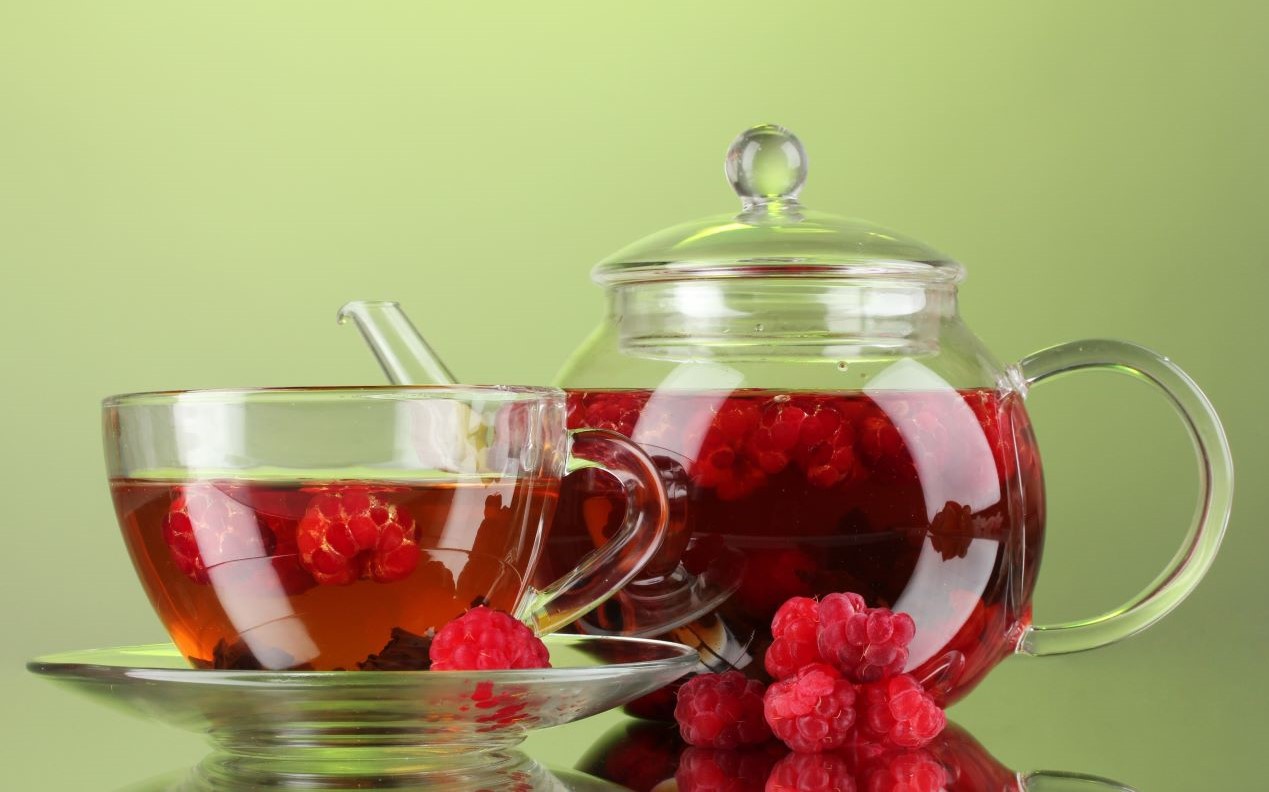This natural remedy that has been cherished for centuries for its remarkable health benefits.
Red Raspberry Leaf Tea is just that—a soothing herbal infusion known for its impressive health-boosting properties. From supporting women’s reproductive health to enhancing overall wellness, this herbal tea is a powerhouse of nutrients and therapeutic compounds.

Red Raspberry Leaf Tea
Benefits and How It Works
Red Raspberry Leaf Tea is renowned for its ability to support reproductive health, particularly in women. It is often used to ease menstrual discomfort, support pregnancy, and assist in labor and postpartum recovery.
The tea’s high content of vitamins and minerals, including vitamins C and E, iron, calcium, and potassium, makes it a nourishing choice for overall well-being.
The tea works by toning the muscles of the pelvic region, which can help reduce menstrual cramps and make childbirth smoother.
The anti-inflammatory and antioxidant properties of red raspberry leaves further enhance their health benefits, helping to reduce inflammation and protect against cellular damage.
Traditional Uses and Role in Today’s Herbal Remedies
Traditionally, Red Raspberry Leaf Tea has been used by midwives and herbalists for centuries to support women’s health. It was commonly employed to strengthen the uterus, ease morning sickness, and improve milk production during breastfeeding.
Today, it remains a popular herbal remedy, particularly among those seeking natural approaches to reproductive health.
Additionally its use extends beyond women’s health, as it is also valued for its ability to:
- improve digestive health
- boost the immune system
- promote skin health
Studies and Scientific Evidence
Several studies have investigated the effects of Red Raspberry Leaf Tea on reproductive health.
A study published in the “Journal of Midwifery & Women’s Health” found that women who consumed red raspberry leaf during pregnancy had a shorter second stage of labor and were less likely to require interventions during childbirth.
Another study highlighted its potential to reduce menstrual pain and improve overall menstrual health.
The tea’s anti-inflammatory and antioxidant properties are supported by research indicating its ability to combat oxidative stress and inflammation, which are linked to various chronic diseases.
Key Constituents and Their Functions
Red Raspberry Leaf Tea is rich in essential nutrients and bioactive compounds, including:
- Vitamins C and E: Powerful antioxidants that protect cells from damage.
- Calcium: Essential for bone health and muscle function.
- Iron: Crucial for the production of red blood cells and prevention of anemia.
- Potassium: Helps regulate fluid balance, nerve signals, and muscle contractions.
- Tannins: Astringent compounds that help tone and tighten tissues, reducing inflammation.
- Flavonoids: Antioxidants that provide anti-inflammatory benefits and support cardiovascular health.
Origin and Folklore
The red raspberry plant, Rubus idaeus, is native to Europe and parts of Asia, though it is now widely cultivated around the world.
Historically, the leaves of the plant have been used in folk medicine across various cultures.
In Native American tradition, red raspberry leaves were brewed into a tea to treat diarrhea and other gastrointestinal issues.
European herbalists praised the tea for its ability to “cool” the body and soothe the stomach.
Recommended Dosage
For general health support, it is recommended to drink 1-3 cups of Red Raspberry Leaf Tea per day.
During pregnancy, particularly in the third trimester, some midwives suggest increasing the intake to 2-4 cups daily, though it is crucial to consult with a healthcare provider before doing so.
Adding Red Raspberry Leaf Tea to Your Health Routine
Incorporating Red Raspberry Leaf Tea into your daily routine is simple and enjoyable. Here are a few suggestions:
- Morning Ritual: Start your day with a cup of warm red raspberry leaf tea to boost your nutrient intake.
- Midday Refreshment: Enjoy a refreshing iced tea version in the afternoon.
- Evening Relaxation: Wind down with a soothing cup in the evening to help relax your muscles and promote restful sleep.
Precautions
While the tea is generally considered safe, it is important to consult with a healthcare provider before using it, especially during pregnancy.
Some people may experience mild side effects such as nausea or diarrhea.
It is also advisable to avoid the tea during the early stages of pregnancy unless specifically recommended by a healthcare professional.
Plant Description
The red raspberry plant is a perennial shrub that belongs to the rose family.
It features woody stems, thorny branches, and vibrant green leaves with serrated edges. The leaves are the primary source of the tea’s medicinal benefits.
Of course, the plant also produces delicious red berries, which are commonly used in culinary applications.
Red Raspberry Leaf Tea
This tea is a time-honored herbal remedy with a wide range of health benefits, particularly for women’s reproductive health.
Its rich nutrient profile, combined with its traditional uses and modern scientific support, makes it a valuable addition to any health regimen.
Whether you are looking to ease menstrual discomfort, support pregnancy, or simply boost your overall wellness, Red Raspberry Leaf Tea offers a natural and effective solution.
Always remember to consult with a healthcare provider before starting any new herbal remedy, especially during pregnancy, to ensure it is safe and appropriate for your individual needs.
P.S. You might also be interested in these herbal remedies for women’s health…
